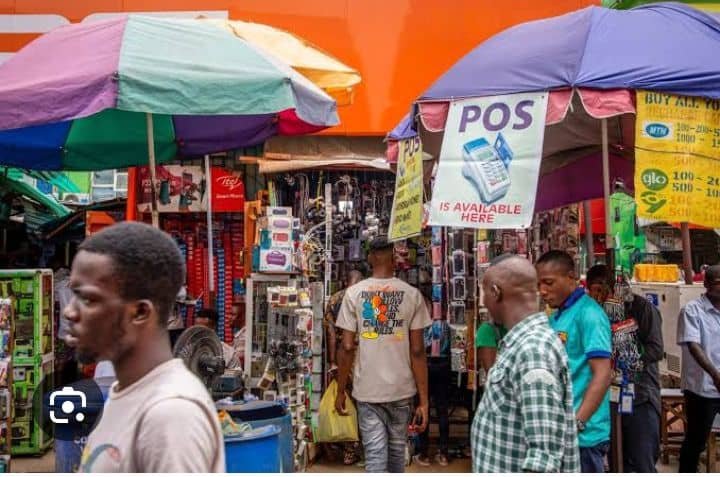Fintech for All: Inclusive Finance for Africa’s Underserved
Fintech has revolutionized financial inclusion in Africa, providing access to financial services for millions of unbanked and underbanked individuals. Mobile money services, such as M-Pesa, have enabled people to store, send, and receive money using their mobile phones. This has been particularly transformative for rural communities, where traditional banking infrastructure is often lacking.
Fintech has also increased convenience and accessibility for financial services. With the rise of mobile banking apps and online platforms, individuals can now access a range of financial services, including payments, transfers, and loans, from the comfort of their own homes. This has saved time, reduced costs, and increased financial flexibility for millions of Africans.
Another significant impact of fintech has been the reduction of transaction costs. Traditional banking systems often come with high fees and charges, which can be prohibitive for low-income individuals. Fintech platforms, on the other hand, offer lower transaction costs, making financial services more affordable and accessible to a wider range of people.
Fintech has also enabled economic empowerment for rural communities. By providing access to financial services, such as savings, credit, and insurance, fintech has enabled individuals to start businesses, invest in their futures, and mitigate financial risks. This has had a positive impact on poverty reduction, economic growth, and social development.
Finally, fintech has improved financial literacy and education in Africa. Many fintech platforms offer financial education and literacy programs, which have helped individuals to better understand financial concepts, manage their finances, and make informed decisions. This has had a positive impact on financial inclusion, economic empowerment, and overall well-being.
The rapid growth of fintech in Africa has also led to concerns about the digital divide. While fintech has increased access to financial services for some, it has also left behind those without access to smartphones, internet, or basic digital literacy. This has exacerbated existing inequalities, particularly in rural areas where digital infrastructure is often lacking.
Another negative impact of fintech has been the high interest rates charged by some lenders. While fintech has increased access to credit, it has also led to concerns about predatory lending practices. Some lenders have been accused of charging exorbitant interest rates, which can lead to debt traps for vulnerable borrowers.
The lack of regulation in the fintech industry has also been a concern. While regulators are working to catch up, the lack of clear guidelines and oversight has left consumers vulnerable to fraud, data breaches, and other risks. This has undermined trust in the fintech industry and highlighted the need for stronger regulatory frameworks.
Fintech has also been criticized for reinforcing dependence on informal financial systems. While fintech has increased access to formal financial services, it has also been accused of perpetuating informal systems, such as mobile money lending. This has raised concerns about the long-term sustainability of fintech models and their impact on financial inclusion.
Finally, fintech has also been accused of excluding vulnerable groups, such as those without formal identification, credit history, or stable income. While fintech has increased access to financial services for some, it has also left behind those who are most in need. This has highlighted the need for more inclusive fintech models that can reach marginalized communities.
Here are five paragraphs highlighting mitigating strategies for the negative impacts of fintech on Africa’s financial development:
To mitigate the digital divide, fintech companies can invest in digital literacy programs and infrastructure development in rural areas. This can include partnering with local organizations to provide digital skills training, as well as investing in mobile network expansion and internet connectivity. By doing so, fintech companies can ensure that their services are accessible to a wider range of people.
Another strategy for mitigating the negative impacts of fintech is to promote responsible lending practices. This can include implementing strict credit scoring systems, transparent interest rates, and flexible repayment terms. Fintech companies can also partner with financial regulators to develop and implement industry-wide standards for responsible lending.
To address concerns around regulation, fintech companies can work closely with financial regulators to develop clear guidelines and oversight frameworks. This can include participating in industry-wide working groups, providing feedback on regulatory proposals, and implementing robust compliance systems. By doing so, fintech companies can help to build trust and confidence in the industry.
Fintech companies can also take steps to promote financial inclusion and reduce exclusion. This can include developing products and services that are tailored to the needs of marginalized communities, such as mobile money services for rural communities. Fintech companies can also partner with local organizations to provide financial education and literacy programs.
Finally, fintech companies can prioritize transparency and accountability in their operations. This can include publishing clear and concise terms and conditions, providing regular updates on system downtime and security breaches, and establishing robust customer complaint resolution processes. By doing so, fintech companies can build trust and confidence with their customers and stakeholders.
Interswitch, a leading African fintech company, has achieved remarkable milestones since its inception in 2002. With over 500 million transactions processed annually, valued at $38 billion, Interswitch has established itself as a pioneer in the African payment landscape. Its presence spans over 10 countries, serving 150 financial institutions and 25,000 businesses, while its workforce exceeds 1,000 employees. Interswitch’s Quickteller platform boasts over 20 million users, and its Verve card scheme has issued over 30 million cards, solidifying its position as a driving force in Africa’s digital payment revolution.
M-Pesa, launched in 2007 by Safaricom, is a pioneering mobile financial service that has revolutionized financial inclusion in Africa. With over 50 million active users, M-Pesa enables users to store, send, and receive money using their mobile phones, providing access to financial services for millions of unbanked and underbanked individuals. Processing over $14 billion in transactions annually, M-Pesa has expanded beyond Kenya to operate in 10 countries, including Tanzania, Mozambique, and Ghana, and offers a range of services, including payments, loans, and savings, making it a leading force in Africa’s fintech landscape.
Chipper Cash, a popular African fintech platform, has been revolutionizing cross-border payments and financial services since its inception in 2018. With over 3 million users, Chipper Cash enables individuals to send and receive money across borders, free from high fees and exchange rates. Available in seven countries, including Ghana, Uganda, and Kenya, Chipper Cash has processed over $1 billion in transactions, providing a seamless and affordable way for Africans to access financial services, make payments, and transfer money across the continent.
Jumia Pay, the digital payment arm of Africa’s e-commerce giant Jumia, has been driving financial inclusion and digital payments across the continent since its launch in 2016. With a presence in over 10 countries, Jumia Pay enables customers to make online payments, pay bills, and top up airtime, providing a convenient and secure way to transact. Processing over $1 billion in transactions annually, Jumia Pay has partnered with local banks, mobile money operators, and financial institutions to expand its reach and offer a range of payment options, making it a leading digital payment platform in Africa.
DPO PayGate is a leading African online payment platform that enables businesses to accept online payments securely and efficiently. With a presence in over 15 countries, DPO PayGate processes millions of transactions annually, providing a range of payment options, including credit cards, mobile money, and bank transfers. By partnering with local banks, financial institutions, and mobile money operators, DPO PayGate has become a trusted payment gateway for businesses across Africa, facilitating e-commerce growth, financial inclusion, and economic development.
Wave Pay is a mobile money service that allows users to send, receive, and store money using their mobile phones. With a presence in several African countries, including Senegal, Côte d’Ivoire, and Mali, Wave Pay provides a convenient and secure way for individuals to access financial services. By leveraging mobile technology, Wave Pay has expanded financial inclusion to underserved communities, enabling users to make payments, transfer money, and save funds, thereby promoting economic growth and development.

In conclusion, the African fintech landscape has witnessed tremendous growth and innovation in recent years, driven by the emergence of pioneering companies such as Interswitch, M-Pesa, Chipper Cash, Jumia Pay, DPO PayGate, and Wave Pay. These platforms have revolutionized the way Africans access financial services, make payments, and transfer money, thereby promoting financial inclusion, economic growth, and development. As the continent continues to evolve, it is expected that African fintech will remain a key driver of innovation, entrepreneurship, and socio-economic progress.
Dr Chukwuemeka Ifegwu Eke writes from the University of Abuja Nigeria.







